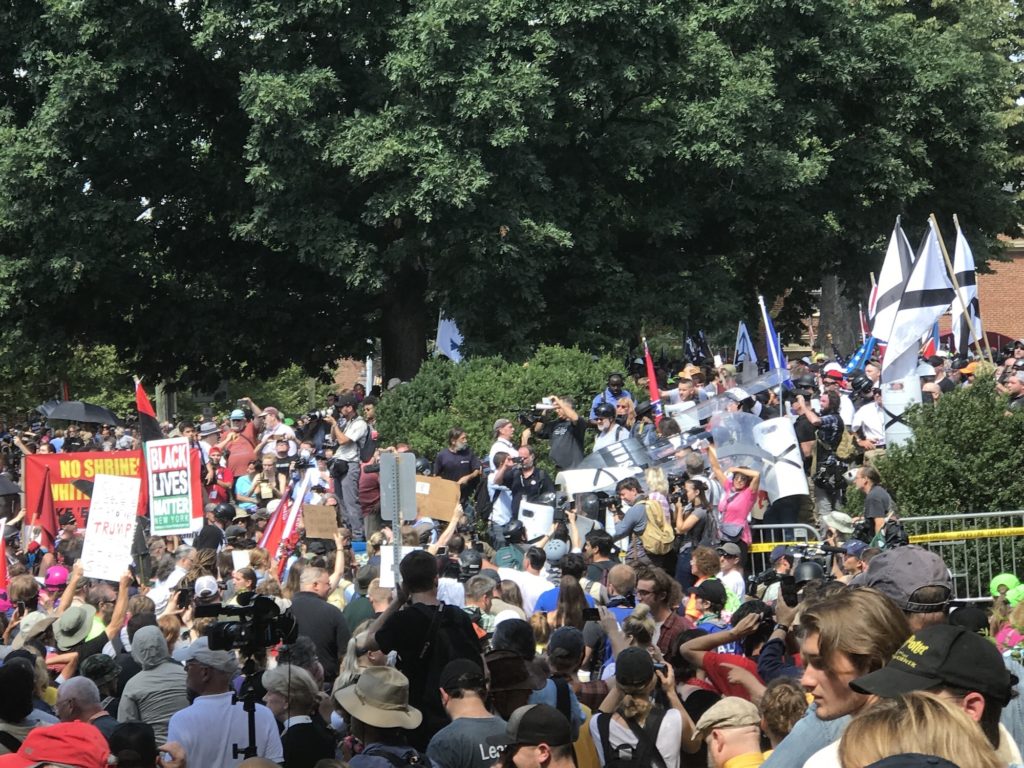On 14 July 2020, 5pm, I will be chairing a webinar on Digital Extremism and the City with Bharath Ganesh and Robert Topinka, who will discuss the digitalised tropes, affects and infrastructures of the far right in, through and in relation to the city. This is part of a new ‘Urban Intersections’ series that I am organising with Mara Nogueira and Andrea Ballatore.
Each speaker will offer an initial set of reflections drawing on work in-progress (abstracts below), followed by a discussion with one another as well as webinar attendees. All are welcome, but registration is required. Participants will receive details about accessing the webinar via Blackboard Collaborate on the day prior to the event.
Here are more details about the speakers and their intended contributions:
Invaded, Degenerate, Untraversable: Far Right Political Geographies of the “Western” City (Bharath Ganesh, University of Groningen)
In this talk, I will present initial reflections on far right’s political geography of the city, centering on three tropes. First, the far right imagines the city as the front line of an invasion and “replacement” of “native” culture, with images of mosques, of slums, and non-white inhabitants frequently reproduced in digital cultures. Second, the city is constructed as culturally degenerate, dilapidated, and controlled by leftists. Third, often articulated through the trope of the “no-go zone”, the far right’s political geography of the city renders it as untraversable, a space of risk that threatens the safety of white people—particularly women—that seek to travel through it. In presenting reflections on these three tropes of the far right’s political geography of the city, it emerges as a mythical entity that reflects far right anxiety over the supremacy of whiteness in European and North American space. This myth-making is not simply diagnostic; the myth of the city as invaded, degenerate, and untraversable synthesizes a false sense of white victimhood, reconfiguring the right to the city as the demand for the (maintenance of) the inscription of white supremacy in urban space.
The Right in the City: From Charlottesville to the Boogaloo Boys and Beyond (Robert Topinka, Birkbeck, University of London)
This talk charts a provisional trajectory from the Unite the Right rally in Charlottesville to street-fighting Proud Boys in Seattle’s CHAZ and the menacing but ambiguous public appearance of so-called Boogaloo Boys at recent Black Lives Matter protests. Although these reactionary subcultures are typically understood to be ‘extremely online,’ the city looms large in the reactionary imaginary not only as a scene of riotous, unruly black and brown bodies but as a material and embodied site of violent political contestation. I suggest that recent work on platform urbanism has much to offer the study of right-wing extremism. Rather than attempting to categorize these contradictory reactionary phenomena as ‘movements,’ I argue that the recombinatory and modular affordances of platforms shape and circulate protean political affects in digital and urban space.
Speakers
- Dr Bharath Ganesh is Assistant Professor of Media Studies in the Centre for Media and Journalism Studies at the University of Groningen. He is a political geographer, focusing on new media, political communication, and cultures of hate and intolerance online using computational and qualitative methods. His research has been published in journals such as Policy & Internet, Cultural Studies and Communication Research. With Jonathan Bright, he is co-editor of Extreme Digital Speech: Contexts, Responses, and Solutions (2020, VOX-Pol Network of Excellence).
- Dr Robert Topinka is Lecturer in Transnational Media and Cultural Studies in the Department of Film, Media & Cultural Studies at Birkbeck, University of London. His research spans disciplines and time periods, drawing on urban studies, media theory, rhetoric, and aesthetics to examine the history and present of media, race, and urban life. He has been published in journals such as New Media & Society, Visual Communication and Citizenship Studies, and is the author of Racing the Street: Race, Rhetoric and Technology in Metropolitan London, 1840-1900 (forthcoming, University of California Press).

0 Comments Leave a comment